Corsair Accelerator 30GB SSD Cache Drive Review
Performance Testing
CrystalDiskMark 3.0.1
CrystalDiskMark is a small benchmark utility for drives and enables
rapid measurement of sequential and random read/write speeds.
WD 500 Caviar Blue HDD By Itself:
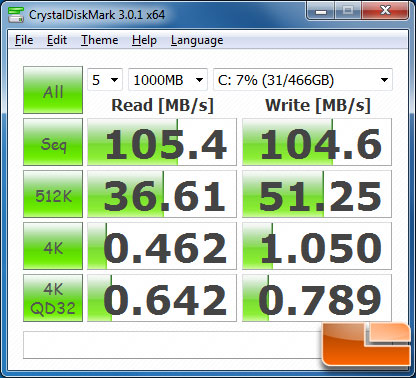
We ran Crystal Mark v3.0.1 run with a file size of 1000MB on the CyberPower Gamer Ultra 2098 and found sequential read and write speeds averaging 105 MB/s. The 4K random reads were 0.5 MB/s and the writes were 1.0 MB/s.
Corsair Accelerator 30GB SSD By Itself:
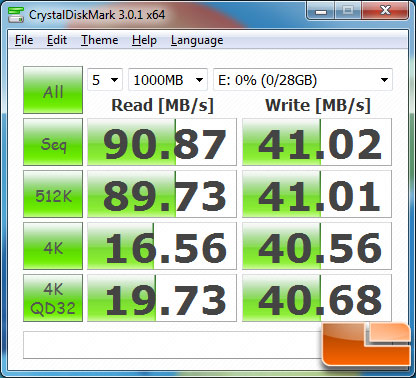
The Corsair Accelerator 30GB is said to have read speeds of up to 270MB/s and write speeds of up to 240MB/s, but we didn’t see that at all on our test system. We were hitting 91 MB/s read and 41MB/s write on the sequential speeds. This is lower than what we were getting with our hard drive! The 4K random speeds are much faster though at 17 MB/s read and 41 MB/s write.
WD 500GB HDD + Corsair Accelerator w/ Caching:

When we enabled the Dataplex software and turned on drive caching it looks like our sequential read and write speeds were a held back by the SSD Cache Drive, but the 4K random read and writes were greatly improved by the SSD Cache drive. Talk about some confusing results!
Keep in mind that Corsair uses a Sandforce SSD controller, so the Accelerator achieves a lot of its performance through data compression. The Crystal Disk Mark benchmark uses random uncompressible data, by default. This usually causes SF-based SSDs
to report lower scores. If we wanted to we could change to a more friendly
data set from within CDM by going to File > Test Data > All 0x00 (0-Fill). For the purpose of this review we won’t be running a million tests and we like to run benchmarks with default settings and not custom settings that are known to make a product look good.
ATTO v2.47
ATTO is one of the oldest drive benchmarks still being used today and
is still very relevant in the SSD world. ATTO measures transfers across
a specific volume length. It measures raw transfer rates for both reads
and writes and places the data into graphs that can be very easily interpreted. The test was run with the default runs of 0.5kb through 8192kb transfer sizes with the total
length being 256mb.
WD 500GB HDD + Corsair Accelerator w/ Caching:
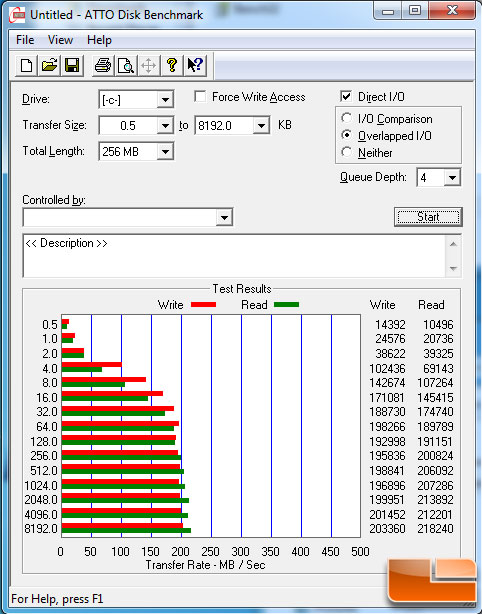
We ran ATTO just to confirm what CrystalDiskMark was showing and found very different results!ATTO shows that with the Corsair Accelerator 30GB SSD Cache Drive running that we were hitting 218 MB/s read and 203 MB/s read speeds. This is much closer to the rated speeds of up to 270 MB/s read and 240 MB/s write! It looks like it is working properly on our SATA II connection.
PCMark 7 Professional
PCMark 7 measures the performance of the latest PC hardware across a variety of common scenarios. PCMark Vantage 7 supports both system level and component level benchmarking and comprises several different test suites but for the purposes of this
review, we employed the secondary storage suite. The nice thing about it
is that you can submit your scores online and compare against others.
WD 500 Caviar Blue HDD By Itself:
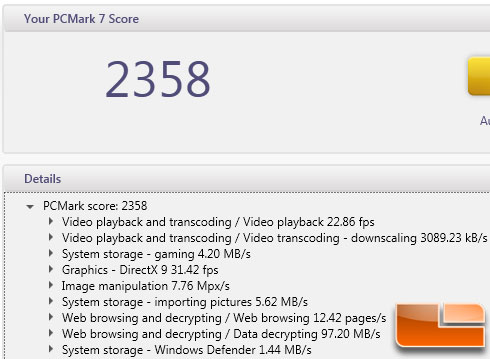
WD 500GB HDD + Corsair Accelerator w/ Caching:
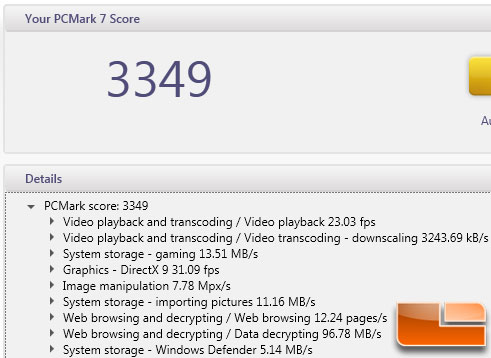
When we enabled the Dataplex software and turned on drive caching it did help performance according to PCMark 7. We went from 2358 to 3349 on our overall performance score. This is a 43% increase in performance! The Corsair Accelerator 30GB SSD Cache drive scored 3349, 3341, 3345 in the three runs after installing the Dataplex software.
Windows Boot Times
Windows start up/shutdown time is always something people are
interested in and we haven’t done it in a while because there was little
variation with the majority of the SSDs. We recently began using an
application called BootRacer to objectively measure the startup times of
the drives.
WD 500 Caviar Blue HDD By Itself:
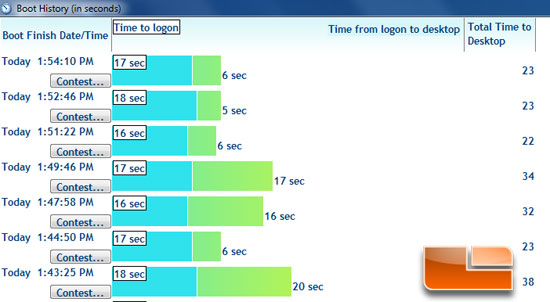
WD 500GB HDD + Corsair Accelerator w/ Caching:
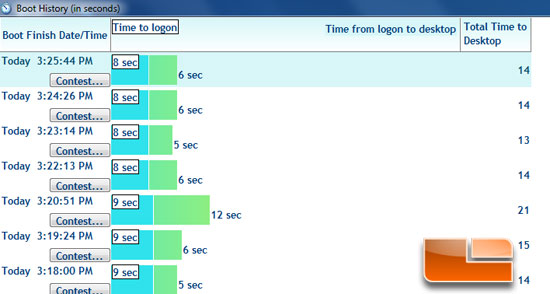
We ran BootRacer 21 times and took the middle seven results to show you how our boot speed improved with the SSD Cache drive installed into the machine. The original hard drive averaged 17 seconds to the logon screen and had an overall average of 28 seconds for the total time to desktop.
With the Corsair Accelerator 30GB SSD Cache Drive installed in the system the time to the logon screen averaged just 8.4 seconds and the total time to desktop was now just 15 seconds. This is roughly twice as fast, which is pretty impressive and something we could most certainly tell when the system was starting up.

Comments are closed.